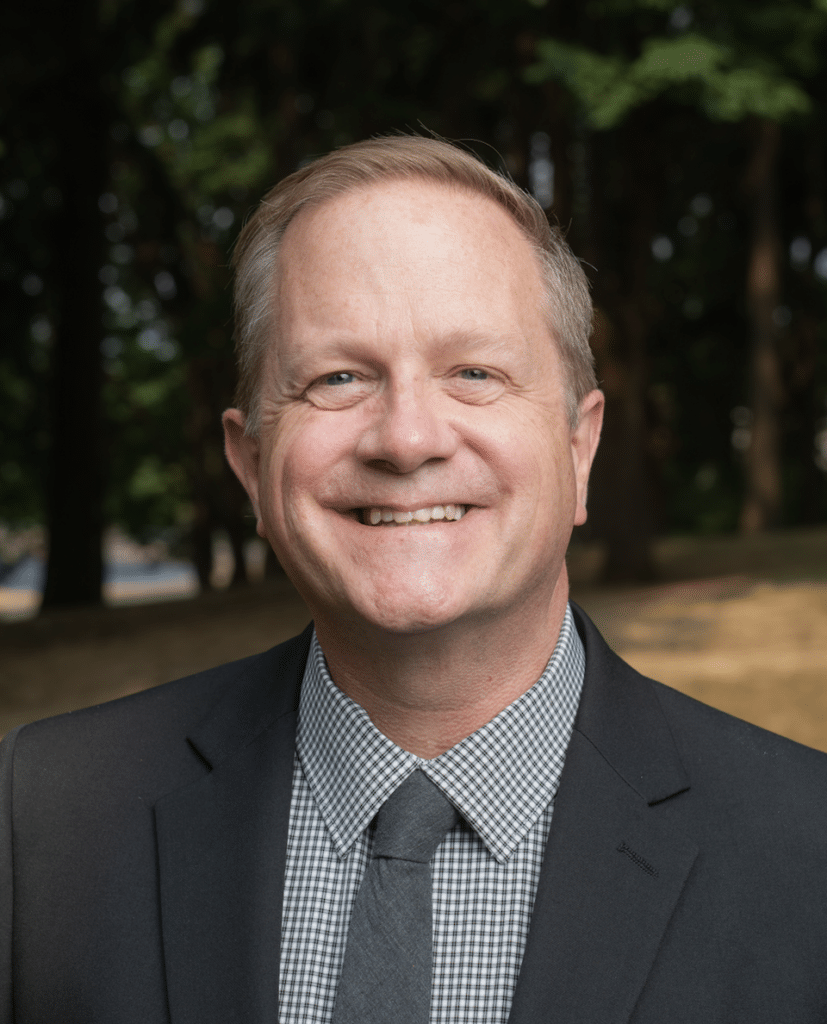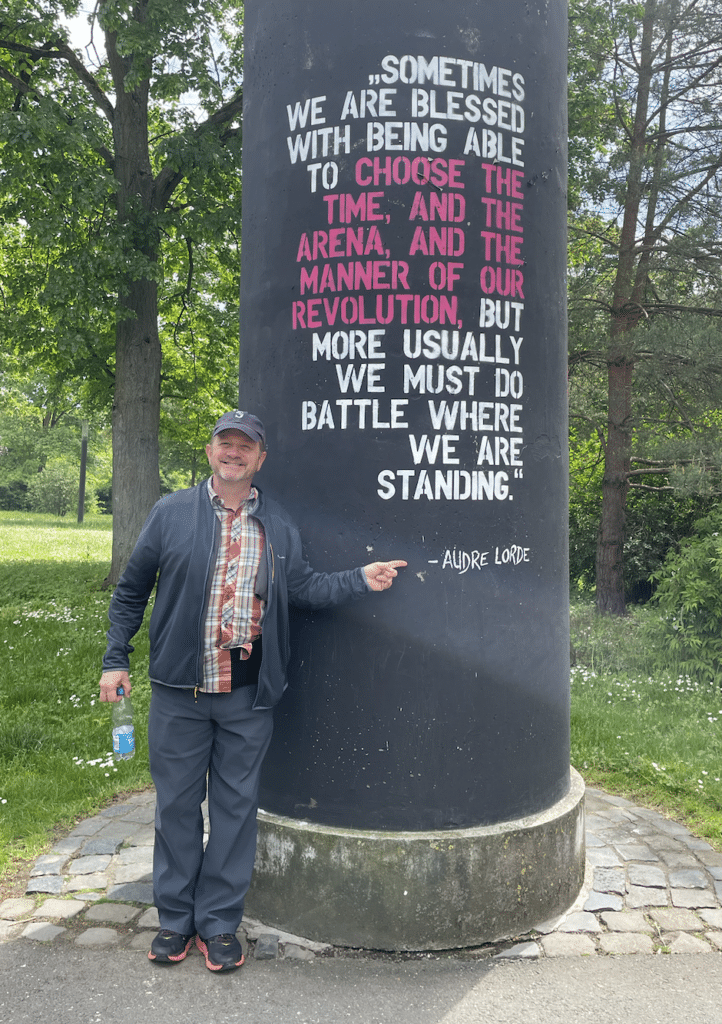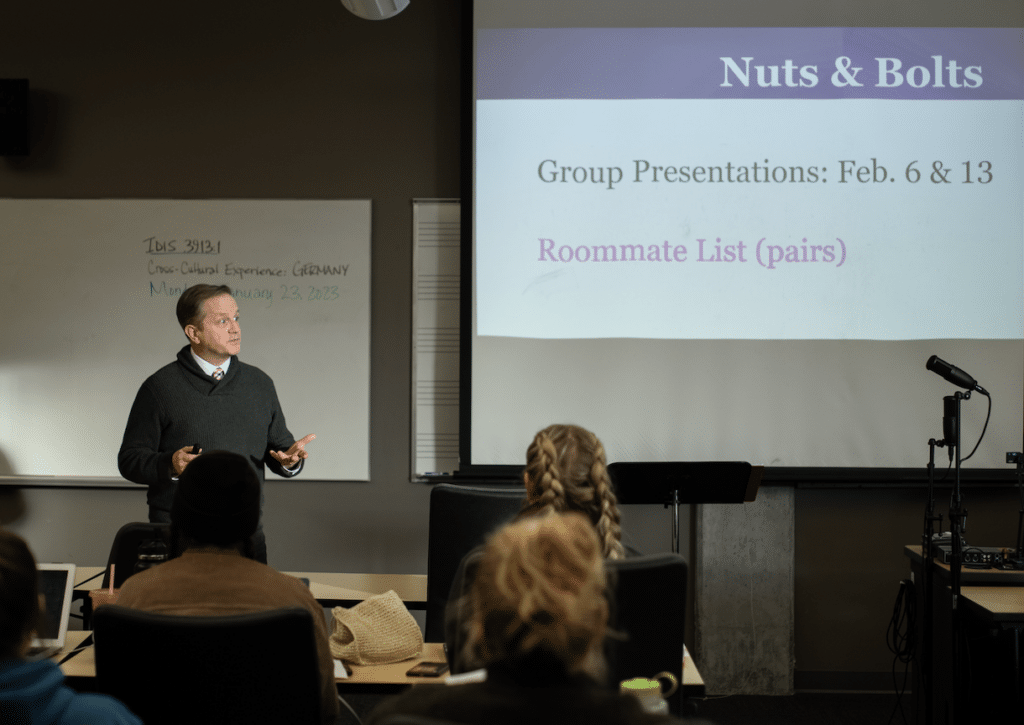By his own admission, Dr. Clint Bryan (M.H. ‘11) has taken a roundabout journey in discovering what he is meant to do professionally. As a man with many interests or “obsessions,” as he calls them, it was difficult to choose a career path early in life. Despite this, Bryan isn’t at all regretful for taking the time needed to find the right fit, and one certainly can’t argue with the results. His efforts have yielded a published book (with a second currently in the works), academic tenure and even a position as Dean within Northwest University’s College of Arts and Sciences.

“While finishing my undergraduate degree through the University of Northern Iowa, I changed my major three times and my minor six times. I ended up with a bachelor’s degree in general studies and a minor in English language and literature,” he offered with a laugh.
Post-graduation, Bryan entered the vocational ministry field and stayed there for 27 years, working in a variety of local church positions under the Assemblies of God denomination. After living and working in Illinois and Missouri, he accepted a position with First Assembly of God in Cleveland, which is how he first came to hear about Tiffin University—just a stone’s throw away.
“As the senior pastor at First Assembly, I was working 65-hour weeks. When I first decided to continue my education, I knew I wanted something flexible. Tiffin’s online Master of Humanities program fit my needs perfectly with regard to this adaptability. Although the classes were online, I never felt distant from my mentors or peers. The caliber of education I received and the level of depth entered during the coursework rivaled much of what I experienced during my seated doctoral program that followed. Witnessing the dedication of TU’s faculty and seeing how passionate they are about the subject matter only further encouraged me to pursue a career in teaching.”
Teaching is exactly what Bryan went on to do. After earning his Ph.D. in composition and rhetoric with a secondary concentration in linguistics through Middle Tennessee State University in 2016, he accepted an Assistant Professor of English position through Northwest. Eight years later, he was promoted to Dean of their College of Arts and Sciences. Throughout this decorated career, he has taught and overseen the development of many courses under his institution’s core curriculum, which has required him to keep up with the needs of the modern-day student. In fact, he’s worked with so many college students over the years, that he literally wrote the book (as the saying goes) on how to properly recommend them for job opportunities.

“My co-author, Dr. Mohammed Albakry, helped a lot during my dissertation work, so the two of us became quite close,” Bryan explained. “We discovered that we worked well together during this process. Moreover, during my graduate work, he asked me to serve on a graduate student admission committee for Middle Tennessee’s English Department. In collaborating with him on this, the topic of writing recommendation letters came up organically. Quickly, we identified that the do’s and don’ts of how to navigate this particular form of writing wasn’t something commonly taught to those who teach, and the idea for the book took off from there.”
Currently, Bryan and Albakry are working on their second collaborative publication all about the other genres of academic job applications: teaching philosophies, research statements, and diversity statements. According to Bryan, he has TU, in part, to thank for inspiring him to pursue these projects.
“I have so many interests, which is exactly why I couldn’t narrow down my focus to any particular subject as an undergrad. Not only did I appreciate that the M.H. program allowed me to learn about many subjects under the humanities umbrella, but I was also quite impressed that Tiffin had such a program to begin with. Typically, graduate study is much more specialized, so this was revolutionary. TU’s all-encompassing curriculum gave me the freedom to feed my curiosity, and as a result, I was qualified to teach a wider breadth of classes later in my career. As such, I became acquainted with more students and wrote more letters of recommendation.”
To read a full description of Bryan’s coauthored book or to purchase a copy, visit press.umich.edu/Books/W/Writing-Recommendation-Letters2.
